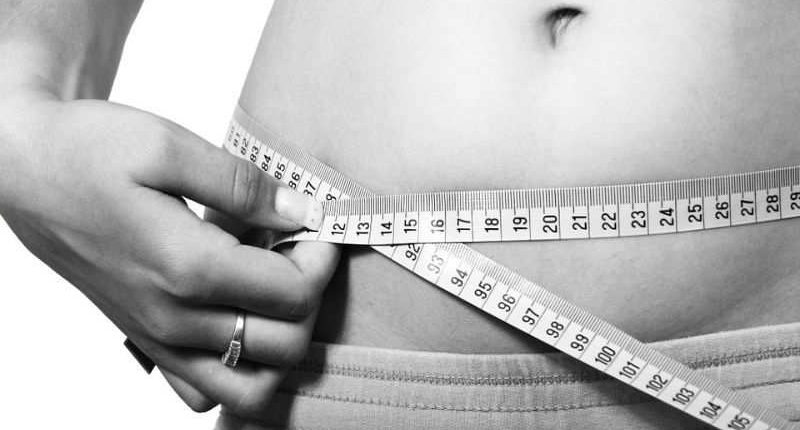You probably think you know your body pretty well. After all, you’re the one who feeds it, nurtures it, gazes at it in the mirror, and uses it to walk through this world. But did you have any idea that it has the power to digest metal? Or that every time you blink you’re taking a tiny nap? It’s all true!
So read on, and revel in all of the amazing facts you never knew your body could do.
12 Amazing Facts You Never Knew About Your Body
1. A Blink is a Micronap
You probably thought that a blink was just something you did to keep your eyes moist or keep dust out of them. That is a very valuable service, of course, but we actually blink way more than needed for that alone—about 15–20 times per minute. In fact, closing our eyes briefly has been found to help us sharpen our attention and serves as a miniature recharge. And for more on boosting your brain power, here are 20 Simple Ways to Improve Your Memory.
2. Hair Can Taste
Our nasal passages and lungs are lined with fine hairs, or cilia, that detect and sweep out impurities. How do they detect it? By sensing bitter tastes of the things passing through them—such as nicotine. When these hairs taste something bitter, they increase their rate of movement, attempting to sweep out the bad stuff. And for more surprising trivia, here are 50 Awesome Facts About Everything.
3. Hair Knows When You Sleep
Another crazy thing that hairs can do: track your sleeping patterns. Researchers have found that our cell-rich hair follicles contain RNA from “clock genes” that express each person’s sleep-wake cycle. If you get up late or go to bed early, your hair will show it. And for more on getting your best night’s rest, Eating This One Thing Will Help You Sleep Better.
4. Your Hair Helps the Environment
Dirty hair can be good for the atmosphere: according to environmental engineers at the Missouri University of Science and Technology, hair absorbs the air pollutant ozone. Scalp oils were found to be a major contributor to this—so if you want to do your part to help your local air quality, skip the shampoo.
5. Your Feet Contain a Quarter of Your Bones
Human feet contain 52 bones—26 for each foot. That’s nearly one-fourth of all the bones in your whole body. Each also contains 33 joints and more than 100 muscles, tendons, and ligaments.
6. Stomach Acid Dissolves Razor Blades
You probably shouldn’t be swallowing these things, but you might be surprised to learn that your stomach could do some serious damage on razor blades if you did. Researchers tested the effects of gastric juice on metal objects and found that over 24 hours, the stomach acid reduced razor blades to 63 percent of their original weight (pennies and batteries, however, were barely affected). And for more great trivia, here are 20 Present-Day Facts No One Could Have Predicted Five Years Ago.
7. Sneezes Can Travel Up to 20 Feet
You may think you’re safe when the guy all the way across the subway car sneezes, but you may be in the line of fire and not even know it. A video study conducted by researchers at MIT found that sneezes travel much farther than previously believed as far as 20 feet. And for more facts on the spread of germs, check out 7 Cold and Flu Myths Busted.
8. You Lose Almost One-Third of Your Bones as You Age
You are born with about 300 bones, but as you grow, some of these fuse together as cartilage ossifies, eventually giving you 206 bones by the time your growing has stopped and you have reached young adulthood. This is one of the 40 Ways Your Body Changes After 40.
9. You Can’t Tickle Yourself
The reason for this is due to your cerebellum—the area in the back of your brain that monitors movement—which predicts the sensation you will feel when you attempt to tickle yourself, countering the response that the tickle would otherwise elicit in other parts of your brain.
“Two brain regions are involved in processing how tickling feels. The somatosensory cortex processes touch and the anterior cingulate cortex processes pleasant information,” Sarah-Jayne Blakemore, a research fellow at the Institute of Cognitive Neuroscience at University College London, explained to Scientific American. “We found that both these regions are less active during self-tickling than they are during tickling performed by someone else, which helps to explains why it doesn’t feel tickly and pleasant when you tickle yourself.”
10. Humans Are the Only Animals That Weep
While many animals produce tears as lubricants for their eyes, humans are the only ones who cry as an emotional response. Dr. Thomas Dixon, director of the Centre for the History of Emotions at Queen Mary, University of London, suggested that tears serve a social purpose for humans and that, “Even for those who think they really are just weeping for nobody apart from themselves, it’s still a sort of performance. You’re showing yourself things have really got bad, or whatever it might be.”
11. We Have More Than Five Senses
Potentially many more, actually. While we have sight, smell, touch, taste, and hearing, humans also have “proprioception” (sense of space) and “nociception” (sense of pain). There’s also “equilibrioception” (sense of balance), “thermoception” (sense of temperature in and around the body), “temporal perception” (sense of time), and more, depending on who you ask. So The Sixth Sense might need a new title.
12. Earwax is Good for You
Not to eat! But that annoying stuff you’re using Q-tips to remove serves the important purpose of lubricating, cleaning, and protecting your ears from infection. It’s as much as 50 percent fat, coating the ear and catching dust and debris—keeping your ears healthy, even if it looks gross.



